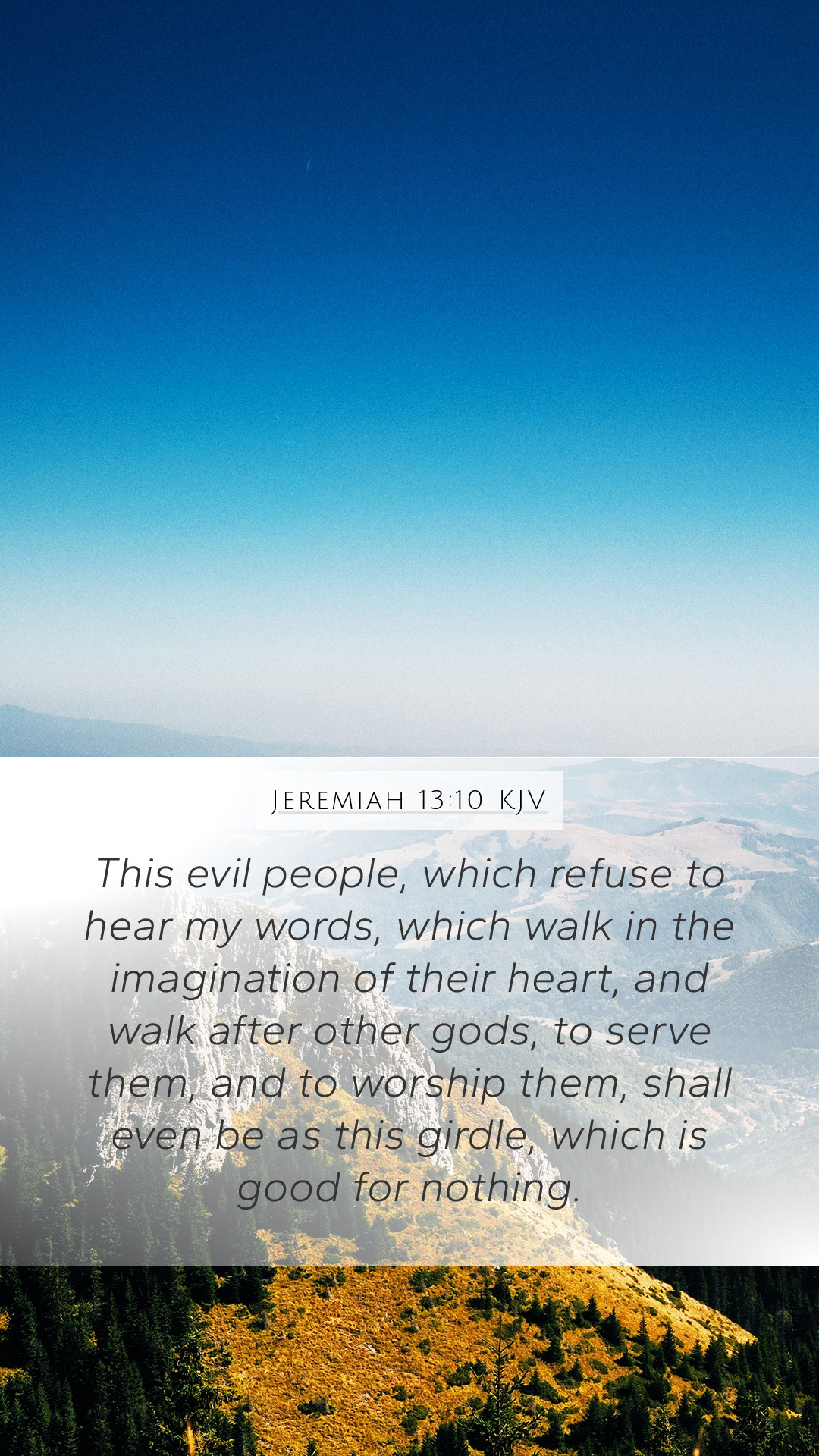Understanding Jeremiah 13:10
Verse Reference: Jeremiah 13:10 - "This evil people, which refuse to hear my words, which walk in the imagination of their heart, and walk after other gods, to serve them, and to worship them, shall even be as this girdle, which is good for nothing."
Overview
In Jeremiah 13:10, the prophet Jeremiah addresses the people of Judah, highlighting their unfaithfulness and stubbornness in rejecting God's commands. The verse employs the metaphor of a ruined girdle to symbolize the people's spiritual state and their separation from God.
Bible Verse Meanings
- Stubbornness and Rejection: The phrase "this evil people" emphasizes the collective rebellion against God, illustrating how they have turned away from Him and His guidance.
- Imagination of their Heart: This refers to the self-serving desires and thoughts of the people, leading them to false beliefs and idolatrous practices.
- Girdle Symbolism: The girdle, or sash, which was once useful but is now "good for nothing," represents the people’s condition—once capable of righteousness, now rendered useless due to disobedience.
- Idolatry's Consequences: Following after 'other gods' illustrates a deep-seated betrayal of their covenant relationship with the Lord and the consequent loss of spiritual value.
Bible Verse Interpretations
Combining insights from various public domain commentaries:
- Matthew Henry's Commentary: Henry emphasizes God's displeasure with a people who refuse to heed divine warnings. The girdle serves as a visual aid to show how their failure to remain faithful to God leads to inevitable destruction.
- Albert Barnes' Notes: Barnes discusses the metaphor of the girdle, underscoring how the people's disregard for God's covenant parallels the ruined girdle—no longer useful for its intended purpose, reflecting their lost potential and value in God's sight.
- Adam Clarke's Commentary: Clarke points out the cultural significance of the girdle, often a representation of strength and support. The failure of the people to maintain their fidelity to God strips them of their strength and divine support.
Bible Study Insights
The implications of Jeremiah 13:10 extend beyond mere theological significance, prompting readers to reflect on their relationship with God and the dangers of turning away. This verse serves as a call to self-examination and reconnection with divine truths.
Scripture Analysis
Through careful scripture analysis, we understand that disobedience and idolatry not only led to physical consequences for the people of Judah but also resulted in spiritual desolation. This notion can be a poignant reminder for modern believers about the importance of staying true to one’s faith.
Cross References
- Isaiah 29:13: Highlights the futility of worship that is merely external and disconnected from the heart.
- Ezekiel 18:30: Calls for repentance and emphasizes the need for a changed heart.
- Jeremiah 2:13: Discusses the abandonment of the fountain of living waters for broken cisterns, analogous to idolatry.
Conclusion
In summary, Jeremiah 13:10 serves as a critical verse for understanding the dynamics of faithfulness and idolatry within biblical contexts. Through the lens of commentary from respected theologians, this verse becomes a profound reminder of the value of obedience to God's word and the destructive nature of sin.


